
New Process
21/02/21 20:31
Change can be a good thing
So today, I rode outside for the first time in 5 weeks. Although I've been doing some really good structured indoor sessions over that spell of time.
It's been some years since I've had such a long spell not riding outside, but my take is different than I thought it would be and certainly different than any past experiences.
I've really embraced using zwift which was reluctant at first, but the more I used it to my benefit, the more I was getting out of it. There's no time during the past 5 weeks where I've really missed riding outside, that's one of my surprises. I really thought I'd be driven mad riding inside, but quite the opposite. I looked forward to the challenges set on the turbo, and I could feel as well as see my fitness improving with some good structure in place.
I do have to say however, today was a great group ride with some great people I haven't seen in some time, and we had a great time.
So the takeaway. Has the time away from the norm made the love for outdoor riding even greater? I do think yes to that. Will I adopt this format in future for the winter, I actually think I will.
Adaptation and change can be a good thing.
Comments
Keeping it Fresh
11/11/20 10:35
This time of year can sometimes feel like a lost or difficult time of year to transition your training.
I certainly get the same feeling, but years of experience has taught me how to work with this time of year, rather than let it get you down.
If you're someone who fears losing all the fitness you've gained through the year, it can be quite an anxious time. This can then be compounded if you use apps which show a fitness score such as TrainingPeaks.
We suddenly see that fitness score taking a nose dive and the self guilt can take over which can lead to a fairly miserable time mentally.
Well, fear not.
First we need to look at the fitness score and understand what its telling us. Different apps or software packages use different calculations, so I won't go into the full ins and outs as to how they all work.The basic is that they use equations using all your training data and come up with your score. Now that is an amazing tool to use both for coaches and athletes in order to see progression.
The thing to be comfortable with here is that those scores are a guide, they aren't an exact. If you work together with a coach, speak with them if you do get hung up on the data, and they will be able to explain where you are with it.
If you think about the progression you make through the winter into spring, then a lot of that work is structured to lift your fitness in a nice controlled manner, this is where working with your coach really comes in.
Now that progression takes structured sessions which build over a long period of time which generally also requires longer duration through your training period as well. Put all those pieces together and you see your fitness score gradually come up over a long spell of time, which is purposeful and again together with a coach is tailored to you.
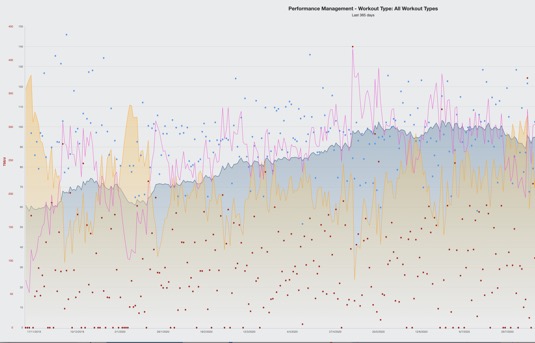
So now your main goals may be finished for the year, and the next ones are quite a way in the distance, so of course we generally kick back a little. This is where some planing comes in and you can research your previous data.
If you look at your fitness score now and compare to this same time last year, how does it compare? Are you roughly the same, down a little or up a little or a lot?
If you're up on that last years number, happy days, if you're roughly the same, great. If that number is down, that's no problem, but you may need to look at how your progression is going to go from here forward.
No matter what, getting back to your desired level of fitness is achievable, but having patience is the key. The saying Rome wasn't built in a day springs to mind.
So let's look at this from another angle. If our fitness score stayed high all the time, how do we keep progressing?
Unless you're retired or a full time athlete most of us have to fit training around work, family, and other things going on in our lives. So what we tend to get is a top out point where we will hit a certain level and it then becomes extremely difficult to make big gains after that.
The key here is working with our available time and trying to hit that optimal level for your main events or goals. If we tried staying at that level year round, trust me, you will just end up fatigued and miss your mark all together for those main goals.
What we then need to do is throttle back a bit this time of year and look forward to that progression going on its upward cycle again. So really if you let yourself relax and recharge, you end up with an exciting prospect of seeing that fitness score creeping back up, which has a huge mental benefit.
Again, refer back to what I said before, look at where you are now compared to this time last year. What we don't really want to do is ease back so much that we drop off a cliff. We want just enough rest and recovery to give us a nice springboard to hit our first target in good shape. If that target is 3 months away for example, just how much can you let yourself ease back? If you're very experienced you may know that, if not, that can be difficult to know.
Mix it up
This is where the part comes in which is something I've always done in my training, it's not top secret or cutting edge, its actually quite simple.For me keeping the mind fresh is the biggest aspect for this time of year. If I carried on hammering my bike every day through wind, rain, or even sat on the turbo everyday, I know my mood wouldn't be great by the time I got to spring.
So I like to use a variety of other sports and keep things fresh, which also benefit neglected areas of our hunched over non extending bodies if you're a cyclist anyway.
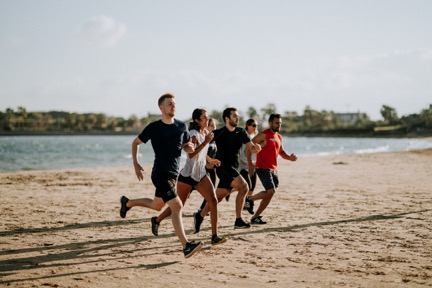
Look at sports you enjoy, perhaps you came from another sport and would like to do some again through the winter. Go for it, you're going to meet old and new friends, no doubt there will be a social aspect to it with a different group of people, again great for the mind.
You may have a sport you'd like to try, why not give it a go, you may actually find the physical benefit will cross over to your main sport.
For me, I traditionally use running and weight training. Of course weight training is great to use year round, but we can now focus more on the strength aspect of it.
Running is a great workout for cardio which can take as little as 20 minutes. If its not your main sport, I'll guarantee you won't be efficient enough to find it easy, so it makes for a great threshold session without thinking about doing a threshold session.
Swimming as I'm now learning is a great workout, if you can swim gracefully, I'm very jealous, but again a brilliant alternative to just riding the bike.

Out of all of this, the main focus point is to keep the mind fresh. Do things you enjoy, and also new things that challenge you. When the hard work starts again, you'll be mentally rested and ready for it.
Goal setting
09/11/20 14:30
We all hear about goal setting and planning events for our future targets.
With 2020 being the way it has so far, those goals have by majority, been quite disrupted.The year has been a difficult time which needed some mental resilience to deal with cancelled events, and with that came a challenge which some of us have never had to face before.
Both as athletes and coaches, it's been a time for learning and dealing with adversity.
With winter fast approaching, we now have a period in time where we would normally be planning out our 2021 events and setting target on the events or races which really get us excited and drive motivation.
Well, we still had that last winter as covid hadn't happened at that point, so this now is the time where that thought process is really going into the unknown. We now have to plan and set goals for 2021 with a lot of uncertainty.
So what do we do, how do we plan ahead with no solid set in stone goals?
This is something I've been looking at closely over the year, using my own personal experience and even re evaluating how I've worked with my own goals.
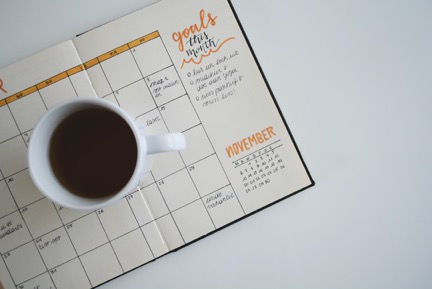
For those of you who've had injury or illness, there are some similarities, especially if you only had one "A" goal and that was missed. In a sense this is similar, but the difference is before covid, we could still plan ahead of the injury stricken event and focus on the next one, still a difficult thing to do, but you still had an event to shift focus to and re start your preparation.
Before I go any further, let's talk about what a goal really is. For my athletes, I like to break it into three. So your main goals for each year are "A" events. Those are the key big moments, the ones which give you a buzz just thinking about them. Some may have only one of these per year, some maybe upto 3, perhaps 4, but not usually more than that.
Then we have "B" events, almost the big ones, but the excitement level is a little less, followed by "C" events. Quite often these are though of as training events. Results are unimportant, but they make for a great training exercise without any stress.
So back to the "A" goal, that's the one that gives purpose to everything you do in the sport. This is the one which gets us out there to train, when we think about it we can see ourselves in it, we can hear it, feel it, live it, what ever sense that gets firing, this is the one that counts.
When I say this is the one that gives purpose, I mean that as an end goal.
We then get into motivation. I hear athletes saying motivation is low, there are many times when I have low motivation to train, believe me, over the many years I was competing at a high level, the balance was more on the non motivated side than it was on high motivation. Some people can think of that as a bad thing, but motivation is an emotion, so of course you will have days when motivation is low, the best athletes in the world have many low motivation days.
Now how do we have a good workout when motivation is low, well without a goal, then there's no purpose behind that session, and before you know it, each session that follows becomes less important, days are skipped, mood gets worse, and we lose track of what we were even training for in the first place.
Now lets look at putting those goals in place, those using TrainingPeaks, putting them in your ATP has a nice layout which is right in front of you as a reminder. With your goals set out, suddenly you have purpose, the grim days have a reason for training. OK, you may not be motivated on a given day, but as soon as you think of that "A" goal, even with low motivation, I'll bet you'll kick your own ass and get the workout done. Once you're finished it, the satisfaction factor lifts the motivation and watch that come back up again in a few days if not tomorrow.
Hang on though, this is all perfect if we have a calendar with guaranteed dates in place. How do we do it without that luxury?
This is where we need to make a slight shift from event goals, and create goals which are non event based as well.
So of course, if you have events with dates on them for 2021, use them, they can still be big motivators.
What we can also use are goals a little more outside the box. This is something I've been doing myself this year. I used to be extremely event driven, that has changed since I stopped competing at a high level, and I have bene lucky enough to learn how to set a hybrid of goals which are event and target based.
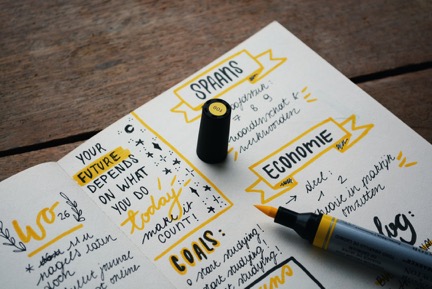
So some outside the box ideas are, learning a skill which has been neglected. That might be improving your cadence by a given date. So lets say your FTP is 250watts, but your cadence is down at 80RPM, you know that's an area for improvement, but you havent really addressed it yet.
Set a goal on your ATP or on a calendar for 3 months and when you do your FTP test at that point, lets see if you can do the same values at or higher than 250 watts with a cadence of 90RPM. That may sound just like a normal training drill, but when you make it a goal, it takes on a new meaning and really has a purpose.
The fact that shift has been made which now makes it an "A" goal really can give it a whole new meaning. Of course we then need a reason for these slight shifts, so why are you increasing your cadence? For this imaginary person, the purpose is to improve efficiency over hilly terrain and hold fatigue back longer.
What does that do for their event based goal then, well it makes them perform better in the event itself, which is a bi product of the shifted goal.
Other non event based goals can be diet, improved sleep habit, improved family balance. Sleep is a good one, again use three months, lets say someone has been terrible on sleep habit, late nights, early mornings, and just hasn't bumped themselves into a better pattern.
So the goal can be to go to bed 15 minutes earlier each week until you hit the desired amount of sleep you know you need. The reason for that sleep change then needs to be a strong reason personal to you, maybe you're late for school/work each day and really need to change it before it leads to an unhealthy balance.
Whatever these slightly shifted goals end up being, they can all have a benefit, but the reason behind them needs to be strong.
The process leading into them is a journey, just like training for your "A" event. If its strong enough, the process of getting there has huge satisfaction. If you've ticked all the boxes on the journey there, then that's the reward at the end of the goal, get that right, and you'll be happy even without events.
Autumn Recovery Tips
19/10/20 13:09
Autumn recovery, what is it, and just how much should I have?
As the old traditional saying of off season is getting heard this time of year, I'll give you my take on what it all means and how you can benefit from recovery and some self care.
Read More…
As the old traditional saying of off season is getting heard this time of year, I'll give you my take on what it all means and how you can benefit from recovery and some self care.
Read More…
Zwift Group Rides
29/04/20 14:33
I've made a couple short videos to explain how you go about joining into mine or any other Zwift group rides.
Anyone who joins in on my rides, we use the App Discord which allows a speech function between us all and adds some interaction.
Before each group ride, I send out the zwift invite, and Discord invite.
Some things you'll need beforehand:
Anyone who joins in on my rides, we use the App Discord which allows a speech function between us all and adds some interaction.
Before each group ride, I send out the zwift invite, and Discord invite.
Some things you'll need beforehand:
- Zwift account
- Follow my (Andrew Roche) on Zwift, the one on the yellow bike
- Discord app, either on your phone or other device
- ANT+ dongle in some cases depending on your turbo and sensors
Turbo Time
21/10/15 11:39
That time of year is here again where the weather is a bit hit and miss, in this part of the world anyway.
It's now when the turbo trainer gets dusted off to escape the gale force winds and driving rain. Not that those are the only times you should use the turbo, for specific workouts it can quite often be a very good choice even in mid summer.
For me I've spent many hours using the most of my time to get in quality sessions inside, but one of the biggest issues was trying to keep some variety involved to kill the boredom.
I've tried many methods including videos, music, movies, and of course specific intervals to stick to. Movies I always found difficult because I was usually going too hard to follow the plot, so that was quickly put aside.
Music is still there, I find it difficult to do a turbo session without it, get some good tunes going and it really drives you on.
The thing that really did it for me though is using Trainerroad. It works by connecting to Bluetooth Smart or ANT+ devices to give you real time data on your computer or iOS device.
You can use this with smart trainers like the Wahoo Kickr which then controls the resistance on the trainer or use it with a traditional trainer and use virtual power. Now I have used trainers in the past with built in power and have to say most have been so far off the mark that using the power feature was just too unreliable. So how good would virtual power be? I didn't have high hopes, but this was spot on!
I have used this alongside my actual power meter and the results are very impressive. In fact the numbers are pretty much bang on.
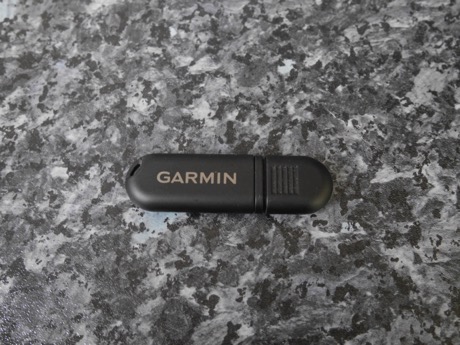
You will need an ANT+ stick such as this Garmin one to link everything together.
To use virtual power you need a speed sensor and in the menu you choose your trainer model which then uses a calculation to give power output. A perfect solution for those without a power meter. I do have to say though, once you use this inside you will soon be looking to purchase a power meter for riding outside or else you'll feel like a kid who just had their favourite toy taken off them.
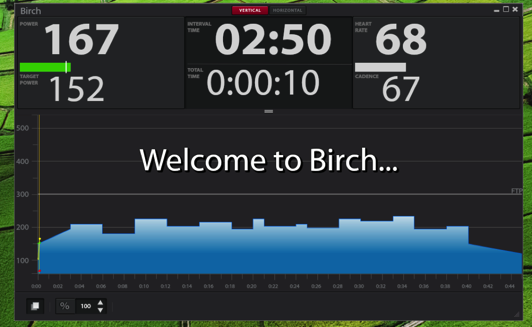
Live screen showing actual power, target power, heart rate, and cadence.
I mentioned movies before, well if you like watching movies, or streaming the likes of Netflix you can do this and have Trainerroad showing at the bottom of your screen. I really like this when using a Sufferfest video, in fact Sufferfest have their own workouts in the Trainerroad library which you can choose so as well as watching the video you will also get the graph at the bottom which replicates the given video.
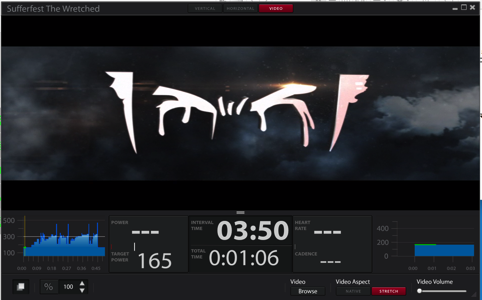
Video view with Sufferfest video.
If like me you like specific ergo type workouts, you will find hundreds of different sessions to choose from. So if you want to target threshold workouts for example, you can choose threshold from the menu under zones and you will be shown a huge selection to choose from.
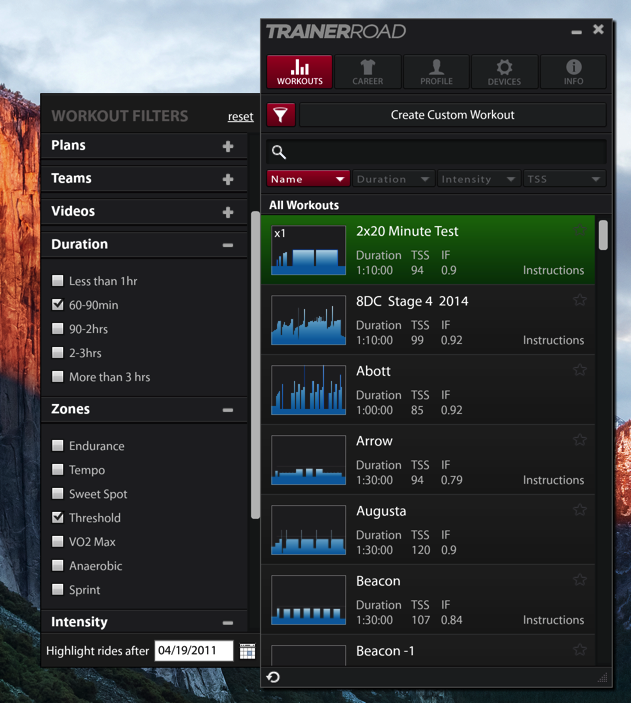
Threshold selection from workout filter menu
There is a subscription for Trainerroad, but you can also suspend it for times you know you won't be using it. This is really useful if you know there is no way you'll be riding inside during the hottest month of the year for example.
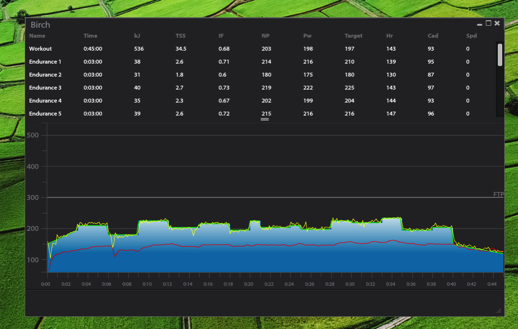
Completed Workout showing each interval.
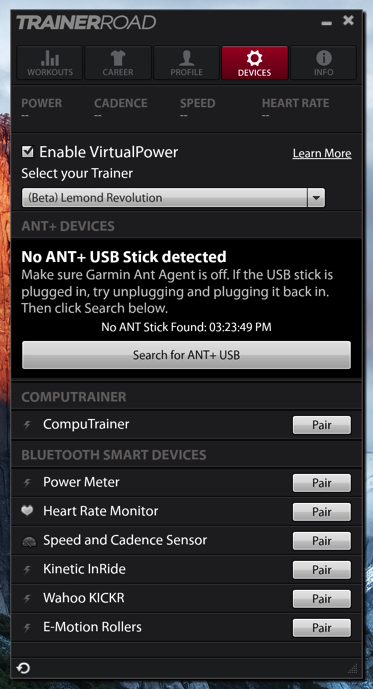
Device Menu with plenty of options
There's now so many options out there to keep indoor training interesting there really is no need to lose too much bike fitness over the winter months. Try to get 3 or more rides of 40 to 60 minutes targeting some threshold work and you will be surprised how much fitness you will maintain ready for when the warmth and sunshine comes our way again.
If you live local to the Isle of Man check out my turbo sessions starting on the 11th of November.
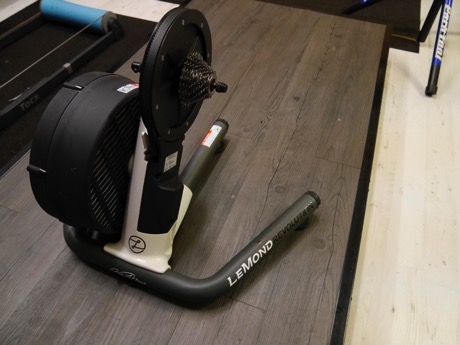
My weapon of choice.


It's now when the turbo trainer gets dusted off to escape the gale force winds and driving rain. Not that those are the only times you should use the turbo, for specific workouts it can quite often be a very good choice even in mid summer.
For me I've spent many hours using the most of my time to get in quality sessions inside, but one of the biggest issues was trying to keep some variety involved to kill the boredom.
I've tried many methods including videos, music, movies, and of course specific intervals to stick to. Movies I always found difficult because I was usually going too hard to follow the plot, so that was quickly put aside.
Music is still there, I find it difficult to do a turbo session without it, get some good tunes going and it really drives you on.
The thing that really did it for me though is using Trainerroad. It works by connecting to Bluetooth Smart or ANT+ devices to give you real time data on your computer or iOS device.
You can use this with smart trainers like the Wahoo Kickr which then controls the resistance on the trainer or use it with a traditional trainer and use virtual power. Now I have used trainers in the past with built in power and have to say most have been so far off the mark that using the power feature was just too unreliable. So how good would virtual power be? I didn't have high hopes, but this was spot on!
I have used this alongside my actual power meter and the results are very impressive. In fact the numbers are pretty much bang on.

You will need an ANT+ stick such as this Garmin one to link everything together.
To use virtual power you need a speed sensor and in the menu you choose your trainer model which then uses a calculation to give power output. A perfect solution for those without a power meter. I do have to say though, once you use this inside you will soon be looking to purchase a power meter for riding outside or else you'll feel like a kid who just had their favourite toy taken off them.

Live screen showing actual power, target power, heart rate, and cadence.
I mentioned movies before, well if you like watching movies, or streaming the likes of Netflix you can do this and have Trainerroad showing at the bottom of your screen. I really like this when using a Sufferfest video, in fact Sufferfest have their own workouts in the Trainerroad library which you can choose so as well as watching the video you will also get the graph at the bottom which replicates the given video.

Video view with Sufferfest video.
If like me you like specific ergo type workouts, you will find hundreds of different sessions to choose from. So if you want to target threshold workouts for example, you can choose threshold from the menu under zones and you will be shown a huge selection to choose from.

Threshold selection from workout filter menu
There is a subscription for Trainerroad, but you can also suspend it for times you know you won't be using it. This is really useful if you know there is no way you'll be riding inside during the hottest month of the year for example.

Completed Workout showing each interval.

Device Menu with plenty of options
There's now so many options out there to keep indoor training interesting there really is no need to lose too much bike fitness over the winter months. Try to get 3 or more rides of 40 to 60 minutes targeting some threshold work and you will be surprised how much fitness you will maintain ready for when the warmth and sunshine comes our way again.
If you live local to the Isle of Man check out my turbo sessions starting on the 11th of November.

My weapon of choice.


Bike Fitting
Coaching
Cycling
Event
Insoles
Ironman
Ladies
Marathon
Racing
Recovery
Reviews
Running
Skills
Sport
Tips
Training
Triathlon
Coaching
Cycling
Event
Insoles
Ironman
Ladies
Marathon
Racing
Recovery
Reviews
Running
Skills
Sport
Tips
Training
Triathlon
